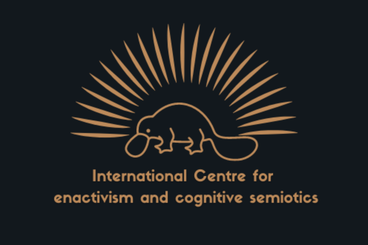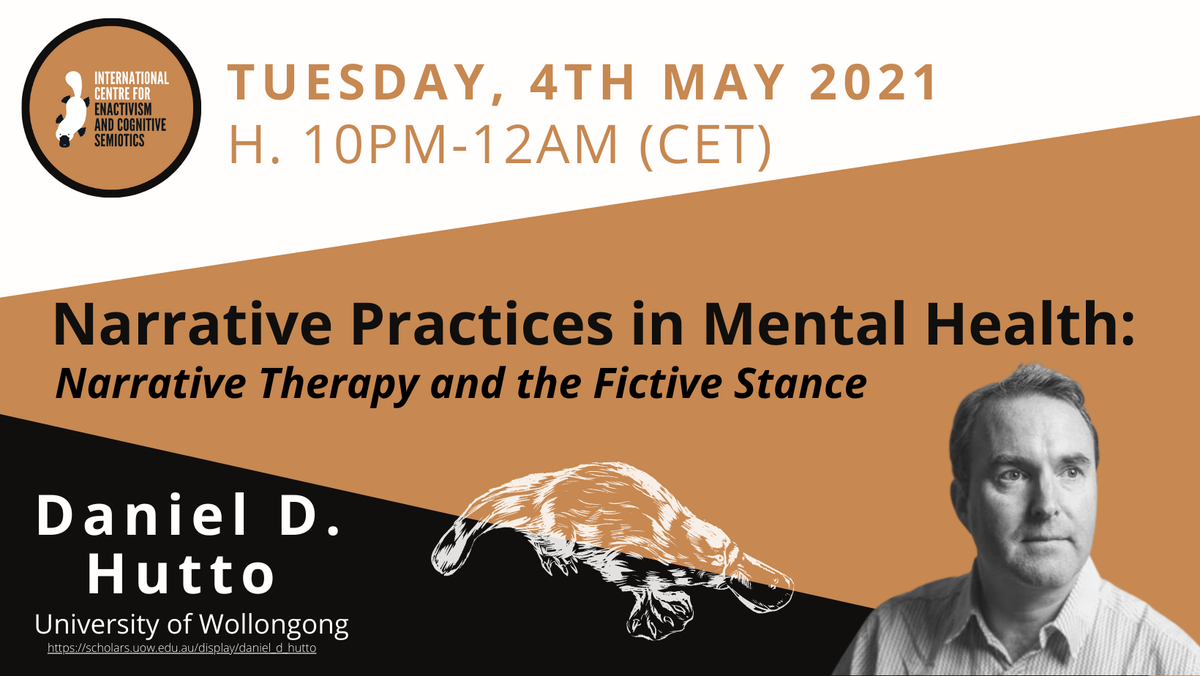Dan Hutto, “Narrative Practices in Mental Health: Narrative Therapy and the Fictive Stance”
Fifth workshop in the series organised by the International centre for enactivism and cognitive semiotics in collaboration with the Knowledge and Cognition research centre.

-
Date: 04 MAY 2021 from 22:00 to 23:59
-
Type: International Centre for Enactivism and Cognitive Semiotics

Narrative practices can support mental health. Or so this paper argues. It offers a way of defending at least some narrative-based therapies from three crippling challenges. Its action unfolds as follows: Section 1 considers, in detail, a particular philosophical analysis of the aims of narrative therapy and how it is assumed to work. It gives close attention to McConnell & Snoek’s (2018) account of how narrative interventions might positively influence the prospects of recovery from addiction. Section 2 details three sceptical challenges that threaten to cast doubt on the acceptability of the aims and methods of narrative therapy, as depicted by McConnell & Snoek (2018) as well as, potentially, casting doubt on the acceptability of other, similar narrative-based approaches to mental health. Finally, Section 3 makes an effort to show that it is possible to address these trio of challenges by recasting certain assumptions about the core aims and methods of narrative therapy. It is proposed that by focusing on the ‘fictive’ rather than the ‘factual’ character of its narrative practices, it is possible to rethink how narrative therapy might work in practice in such a way that would protect it from the sceptical challenges outlined in Section 2. To achieve this outcome, it is proposed that we adjust the way we understand that aims and methods of narrative therapy, and potentially other narrative-based approaches to mental health. In the end, it is concluded that there is a way to see off the three sceptical challenges identified in this chapter and thus improve the philosophical credibility of narrative-based approaches in mental health, opening the path for their wider uptake.
Daniel D. Hutto is a Senior Professor of Philosophical Psychology at University of Wollongong (Wollongong, Australia), Faculty of Arts, Social Sciences, and Humanities, and Head of the School of the School of Liberal Arts. Daniel Hutto’s research focuses primarily on issues in philosophy of mind, psychology and cognitive science. He is known for promoting thoroughly non-representational accounts of enactive and embodied cognition, and for having developed a hypothesis which claims that engaging with narratives, understood as public artefacts, plays a critical role in underpinning distinctively human forms of cognition. Professor Hutto is member of Australian Association of Philosophy Member, American Philosophical Association, Behavioural and Brain Sciences Association Associate, British Philosophical Association, Australian Association of Philosophy Convener of Philosophy in the Community (2016-2018), British Wittgenstein Society Treasurer (2008-2013), British Philosophical Association Treasurer (2003-2008).
Event is free! Download the flyer and click the platypus to join the meeting!